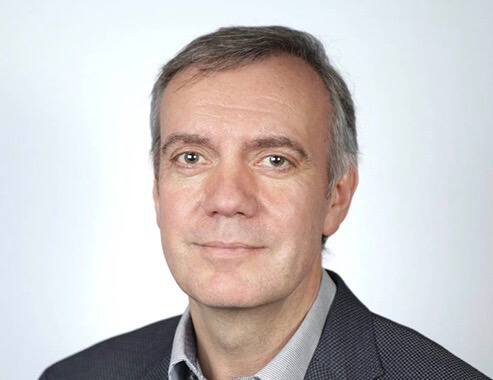Meet The Team is Nell Health’s monthly employee spotlight series meant to unveil the stories behind the minds who make up Nell. Each time, you’ll get to know us a bit better!
This month, meet our Medical Advisor, Dr Gavin Ralston. Dr Ralston is a GP and Senior Partner at Lordswood Medical Group and trained at Birmingham Medical School. He sees Nell Health as a significant step in the right direction towards preventative healthcare.

Tell us about yourself!
I’ve been a GP for about 30 years or so, having qualified in 1984 (which feels like the Middle Ages now!). I started off as a junior doctor at local hospitals for 7 years, later moving to be a partner at a general practitioner, where I’ve been ever since. During that time, I became executive partner of the practice, building and expanding it to two other branches. I got into NHS management by establishing and chairing a clinical commissioning group for 6 years. I was also involved with the British Medical Association in their GP Executive Committee and in one of their hospitals for their health screening program. I have been involved with Nell for more than 3 years.
What does a typical day look like at Nell?
My main job is to be a GP. So, my work at Nell is more flexible, providing medical advice for products and customers.
I’ve been heavily involved with writing up the advice and checking labs we would potentially work with. Most of our work is now done virtually and the team had to help me get used to new virtual working technologies, but it definitely worked out in the end.
Does this type of virtual interaction translate into a GP’s office?
Fortunately, prior to the pandemic, we had been making a move towards video and telephone consultations. We’ve got a structure that’s nicely set up to keep up with the increased necessity and demand. Nevertheless, the current situation has cemented a lot of changes that were much slower to materialise.
It’s really convenient for patients in terms of time. From wherever they are, they just need to pop on their device and they’re immediately with the doctor. It doesn’t save doctors any time in my opinion, since we don’t have any visual cues. When patients come in, doctors are handed a plethora of data without even having said a word. Over the phone, we may end up prodding a bit more.
“Prevention is better than cure”. Is that always the case?
Definitely, because the cure is normally quite painful and unpleasant. And, it does not always work! There are limited known options when it comes to preventative health, but I think that’s where Nell comes in with something unique. It gives you insight into what your genetic potential is in terms of nutrition as well as giving you a snapshot into how you are currently doing with the blood tests.
How does knowing your genetics help in preventative healthcare?
It’s part of the picture. One’s health is very complicated with a mixture of the environment and your underlying genetic potential. If you can identify your biology and work with it, you can surely end up with a better outcome.
Nutrition and Genetics is a uniquely interdisciplinary field. Have there been any breakthroughs and challenges in accepting it in the field of medicine?
It isn’t completely accepted at the moment. At Nell, Dr Mavrommatis, our Head of Nutrition & Genetics, is very strict about what constitutes good evidence. The science behind our work is of high quality and I think in ten years time, Nell will be even more interesting than it is currently with all the new research that will emerge.
Medicine is quite a traditional and rigid field, so it will probably be some time before they fully integrate genetics into the system. Doctors, however, are opening up to personalisation thanks to wearables. We’re getting much more data than we were before. Rather than a one-time blood pressure check, GPs can consistently track it over a longer period of time.
Of the health areas that Nell focuses on in our genetic test, which do you find the most fascinating?
The gene that relates to tasting fats. Some people can’t really sense fats and you can see that around the dining table. If you can find out about your sensitivities to different tastes, your diet can be personalised to ensure that it’s balanced.